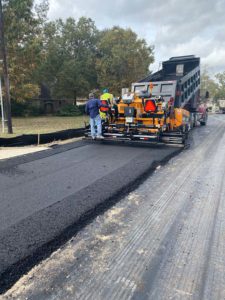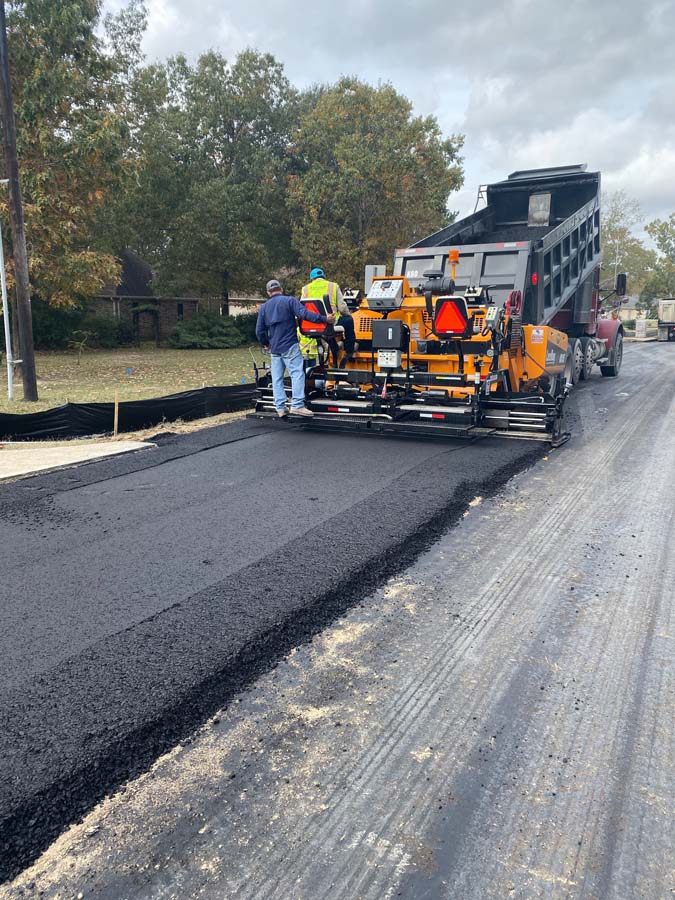
What Is Asphalt Paving?
Asphalt companies describe paving as installing and compacting one or more layers of asphalt. The procedure may be relatively small in scope; depending on the asphalt contractor, a full-depth patch to mend a pothole can be described as asphalt paving or an asphalt repair. Houston asphalt paving contractors may use the term to describe the installation of an asphalt overlay. An overlay, sometimes called asphalt resurfacing, is a process in which the existing pavement is milled to a precise, predetermined depth before one or more layers of asphalt are placed and compacted. In some cases, asphalt paving is also used to describe the process of removing and replacing an existing pavement or constructing an entirely new pavement.
What Is Asphalt Seal Coating?
A sealcoat or asphalt sealant is a liquid that is applied to the surface of an asphalt pavement. Like the paint applied to wood siding, the primary function of a sealant is to protect what lies beneath it, but both paint and sealcoat can provide aesthetic benefits. Sealants help protect against corrosive chemicals, ultraviolet radiation, automotive fluids, and other environmental influences that can destroy the pavement’s entire structure. Sealed asphalt pavements have a smoother, more even surface, and sealants also rejuvenate the color of faded asphalt pavements.
When Do I Need an Application of Sealcoat?
Sealant applications are considered routine maintenance procedures. In the Houston area, most parking lots will require a fresh sealant application about every 18 to 24 months. One way to tell whether your pavement needs a new sealant application is to look at its color. If your pavement no longer has a rich, dark color or has faded to gray, you should have it sealed as soon as possible. Since sealants cover existing pavement markings, many people schedule their parking lot striping at the same time as their sealant applications.
When Do I Need Asphalt Paving?
Typically, you will need a reputable asphalt contractor to evaluate your pavement and recommend the proper procedure. For example, it is often possible to simply fill cracks to repair them, but an extensive pattern of interconnected cracks resembling an alligator’s scales may require an asphalt paving procedure. If your pavement is old and unsightly but structurally sound, you might benefit from installing an asphalt overlay.
Why Should I Call Marathon Solutions Group?
We are a full-service Houston asphalt paving company with an impeccable reputation for customer service, craftsmanship, and professionalism. We offer a wide variety of paving services, including pavement repair, parking lot striping, asphalt paving and resurfacing, sealcoating, asphalt crack repair, concrete installation, thermoplastic markings, bollard installations, concrete repair, and parking lot signage. If you are interested in obtaining a free quote, you can either call 800-879-1147 or send us your details by submitting the online form.


